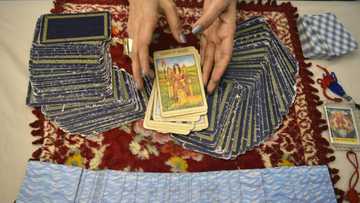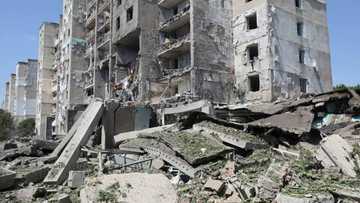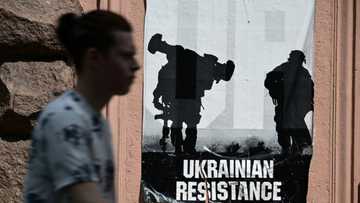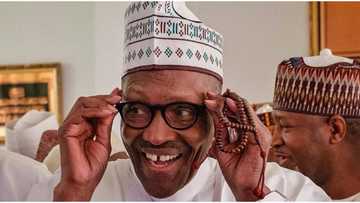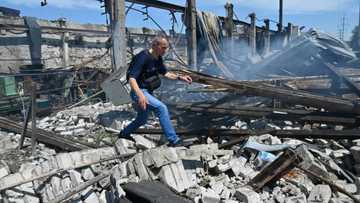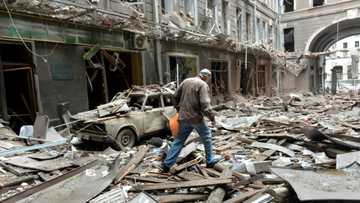"Russia Has Mastered This Tool Quite Well": Zelenskyy’s Aide Speaks of Potential Famine in Africa
Kyiv, Ukraine - On Thursday, February 24, 2022, Russia invaded Ukraine in what Vladimir Putin called a "special military operation" to "demilitarise and denazify" Ukraine.
PAY ATTENTION: Click “See First” under the “Following” tab to see Legit.ng News on your Facebook News Feed!
Minutes after Putin’s announcement, Russian missiles and airstrikes started hitting Ukraine, including the capital Kyiv which is home to nearly 3 million people.
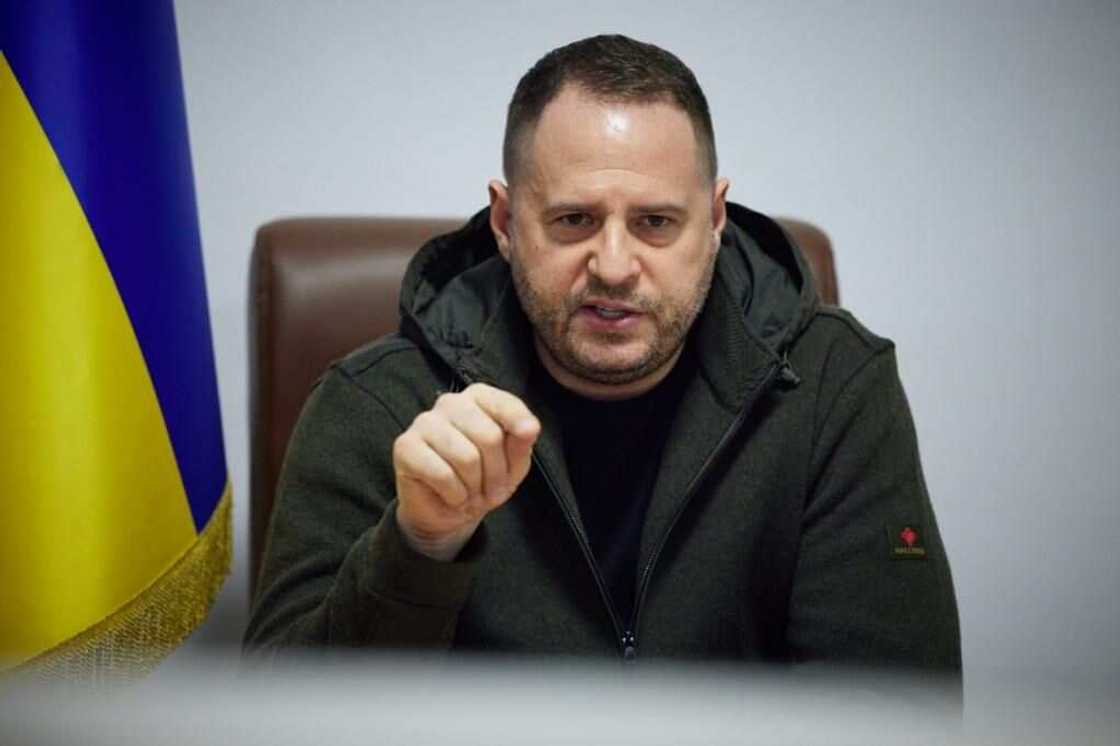
Source: UGC
Putin reportedly had a two-day plan to capture Kyiv. However, the plan completely failed. His expected swift and decisive victory has become an illusion. Four months after the invasion, Ukraine is still standing strong, mounting a strong resistance.
As part of its bold resolve not to give in to Russia’s aggression and to establish itself firmly as an independent, sovereign European state, Ukraine is seeking to join the European Union.
On Thursday, June 23, an important day for Ukraine as the EU confirmed its membership request, Mr Andriy Yermak, Head of the Office of the President of Ukraine, spoke about the Russian invasion and its economic impacts exclusively with Legit.ng.
PAY ATTENTION: Follow us on Instagram - get the most important news directly in your favourite app!
Russia cannot defeat Ukraine on the battlefield – Yermak
Speaking with Legit.ng on Thursday via Zoom, Mr Yermak said Russia resorted to committing “bloody mass crimes against the civilian population” and putting “pressure on the international community by creating artificial energy and food crises” upon finding out it cannot win Ukraine “on the battlefield.”
In the past year, Russia has been deliberately reducing gas flows to EU countries to push up prices. So, it is Russia's aggression that is the main reason for energy prices rising around the world.
“Russia has purposefully imposed a blockade on Ukrainian ports in the Black and Azov seas to prevent the export of Ukrainian food. This is already causing a rise in global food prices. After all, Ukraine has traditionally been one of the main suppliers of wheat, sunflower oil, corn, and other products,” Mr Yermak told Legit.ng while highlighting the impact of the war on Africa and the rest of the world.
According to him, the rise in food and energy prices translates to higher prices for all goods. This aspect directly touches the interests of the majority of the inhabitants of the African continent.
“You are well aware that a critical rise in prices is very likely to be followed by political instability, unrest, and even war,” Mr Yermak added.
Africa and the Russian invasion of Ukraine: Moscow is creating global artificial famines
Mr Yermak, who is described as “the right hand” of the Ukrainian President Volodymyr Zelensky further said, following its failure on the battlefield, Russia is using its old tactic of creating artificial famines in a bid to stop the world from supporting Ukraine.
He cited the UN analysts as confirming that Russia's actions could lead to famine and instability in dozens of countries.
“We have a prosperous and fertile land. But in its effort to conquer Ukraine, Moscow has carried out three man-made famines that took the lives of at least 4 million people here. Believe me, we know very well what it’s like – and that is something we wouldn’t wish on anyone. Moreover, it’s something we’d never do to anyone. We provide food security for 400 million people around the world,” Mr Yermak said.
He admitted that Russia has mastered this tool quite well. In the early 2000s, it carried out three gas famines in Ukraine, and now, it's doing the same to the European Union. And the famine that Russia is now threatening Africa with, its purpose is to stop the world from supporting Ukraine.
“So if it works, then why wouldn't Moscow, in the very same way, try to force Nigeria – its rival – to reduce oil extraction rates?”, Mr Yermak asks.
Reportedly, Russia steals grains in the occupied Ukrainian territories and tries to sell them by way of smuggling. And Moscow also blocks Ukrainian ports, preventing grain exports.
“All the food that Ukraine supplied to Africa usually went through our ports. Any other route is much more difficult, longer, and more expensive. Besides, Russia carries out rocket attacks on our grain terminals. This is not just non-market competition. The destruction and restriction of access to food are crimes against humanity,” the Head of the Office of the President of Ukraine said, further explaining how the Russian invasion is affecting Africa.
He said as part of its efforts to create artificial famines, Russia not only blocks the export of Ukrainian grain but also limits its own export. In addition to all, the invaders are purposefully destroying Ukraine’s agricultural infrastructure.
“That is why Russia is the only reason for today’s problems with the supply of Ukrainian food to the global market,” he told Legit.ng.
Ukrainian grain export to Africa: what countries are affected by war
Today, more than 90 million tons of grain are amassed in Ukrainian storage facilities. Until recently, Ukraine was exporting over 50 million tons of grain annually to different regions of the world. Over a quarter of this volume went to African countries.
For example, Egypt heavily depends on food supplies from Ukraine and is the second buyer of Ukrainian grain after China. Ukraine, traditionally, has also been making large food deliveries to other countries of Africa, from Libya, Tunisia, and Morocco to Tanzania.
Some of those grain deliveries from Ukraine have also been accepted by Cameroon, Uganda, Sudan, and a number of other countries. Even Nigeria, which in 2020 became the fourth largest wheat importer in the world, received part of this volume from Ukraine.
In the meantime, Benin, Sierra Leone, Niger, and the Gambia are known to be highly dependent on food imports. Although they didn't buy grain from Ukraine last year, they are heavily dependent on global prices.
“Therefore, you can see how severely the Russian aggression can affect the whole African continent. You can clearly see the results of the Russian aggression on the shelves in the stores,” Mr Yermak added.
He is speaking not only about wheat. For example, Ukraine is the absolute leader in the production of sunflower and sunflower oil. Ukrainian producers represent over half of the world’s sunflower oil market. Ukraine exports many other food products as well.
“Ukraine has always been a responsible supplier and a good partner,” Mr Yermak said.
Russia’s artificial famines: How Ukraine is fighting back
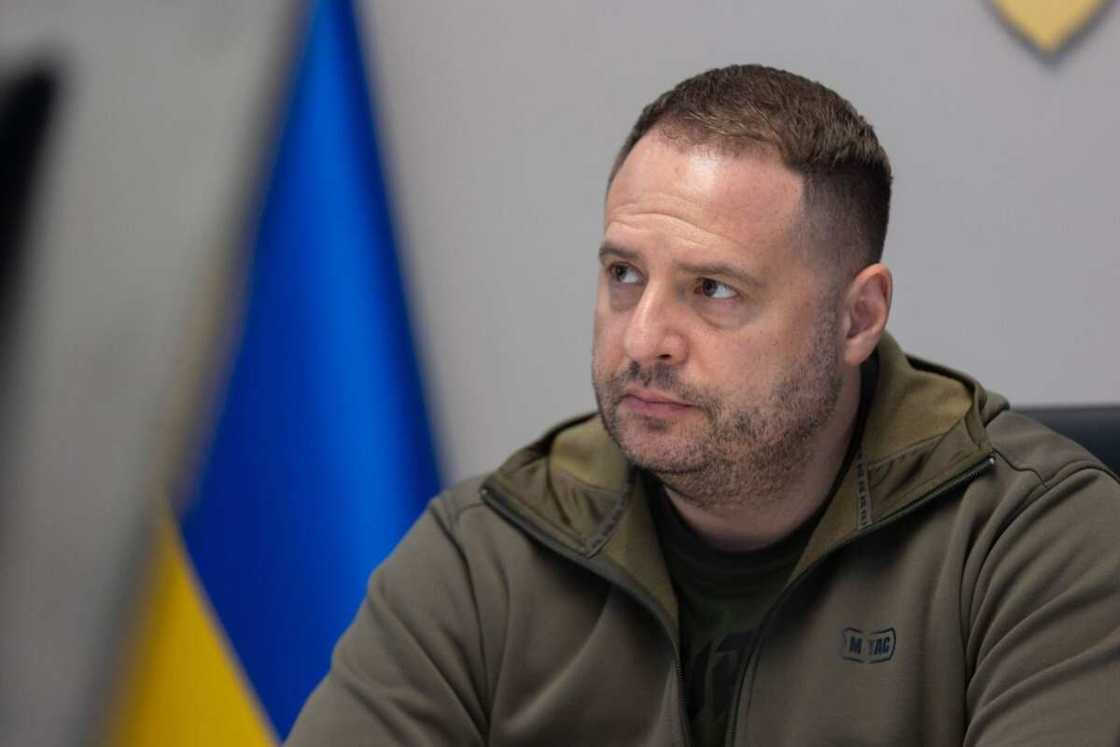
Source: UGC
Mr Yermak said Ukraine is not a stranger to famines artificially created by Russia. One of such famines, and arguably the most horrific, is the famine of 1933 which is now known as Holodomor or "death by hunger".
Millions of Ukrainians died in the famine that many labelled a genocide by the Soviet regime of Joseph Stalin, according to a report by BBC.
Mr Yermak said Ukraine does not want Russia to unleash this horrific experience on the whole world. According to him, Ukrainians are fighting back not only for territories as a piece of land, but also to get access to the infrastructure that will help them to restore the grain supplies to the world.
President Zelensky’s aide listed the steps Kyiv is taking to restore the grain/wheat supply and stop Moscow from creating artificial famines.
As Mr Yermak stated, the first step is to de-occupy Ukrainian territories. For this, Ukraine needs weapons, and it’s getting them. The second one is to de-block the ports. Ukraine is working on this through both negotiations and military means, gradually destroying the Russian fleet, including their flagship Moskva.
The third step is to massively expand international sanctions against Russia.
“Its blackmail must be met with coordinated economic pressure. As a result, only a total military defeat of Russia will deprive it of the opportunity to continue provoking global crises,” he told Legit.ng.
At the same time, the Ukrainian government is doing everything in its power to establish alternative routes.
Mr Yermak said “any time-wasting” will allow “Russia to continue blackmailing the international community and deepen the crisis.
“That is why the only way to save the world from an increase in prices and a food crisis is to, as soon as possible, ensure the victory of Ukraine over Russia and end the war completely. Then, Ukraine will be able to establish food production and its delivery to the global market in the shortest possible time. Our agricultural enterprises are already in full throttle in all territories that were not affected by the war or have been liberated by the Ukrainian troops,” he added.

Read also
“Cameroonians, Nigerians closer to us than Russians”: Why Ukraine is to extend relationships with Africa
Andriy Yermak is the Head of the Office of the President of Ukraine, the “right hand” of President Volodymyr Zelensky. He plays a key part in Ukraine's diplomatic efforts. His father is a Ukraine-born Jewish and his mother is of Russian origin.
Mr Yermak has a master's degree in international private law. Before joining President Zelensky's presidential team, he had a successful career as a lawyer and film producer.
On 21 May 2019, newly elected President Zelenskyy appointed Yermak as Presidential Aide for Foreign Policy Issues. In this role, he negotiated major prison exchanges with Russia during the War in Donbas.
Yermak became the Head of the Office of the President of Ukraine on 11 February 2020.
Source: Legit.ng


